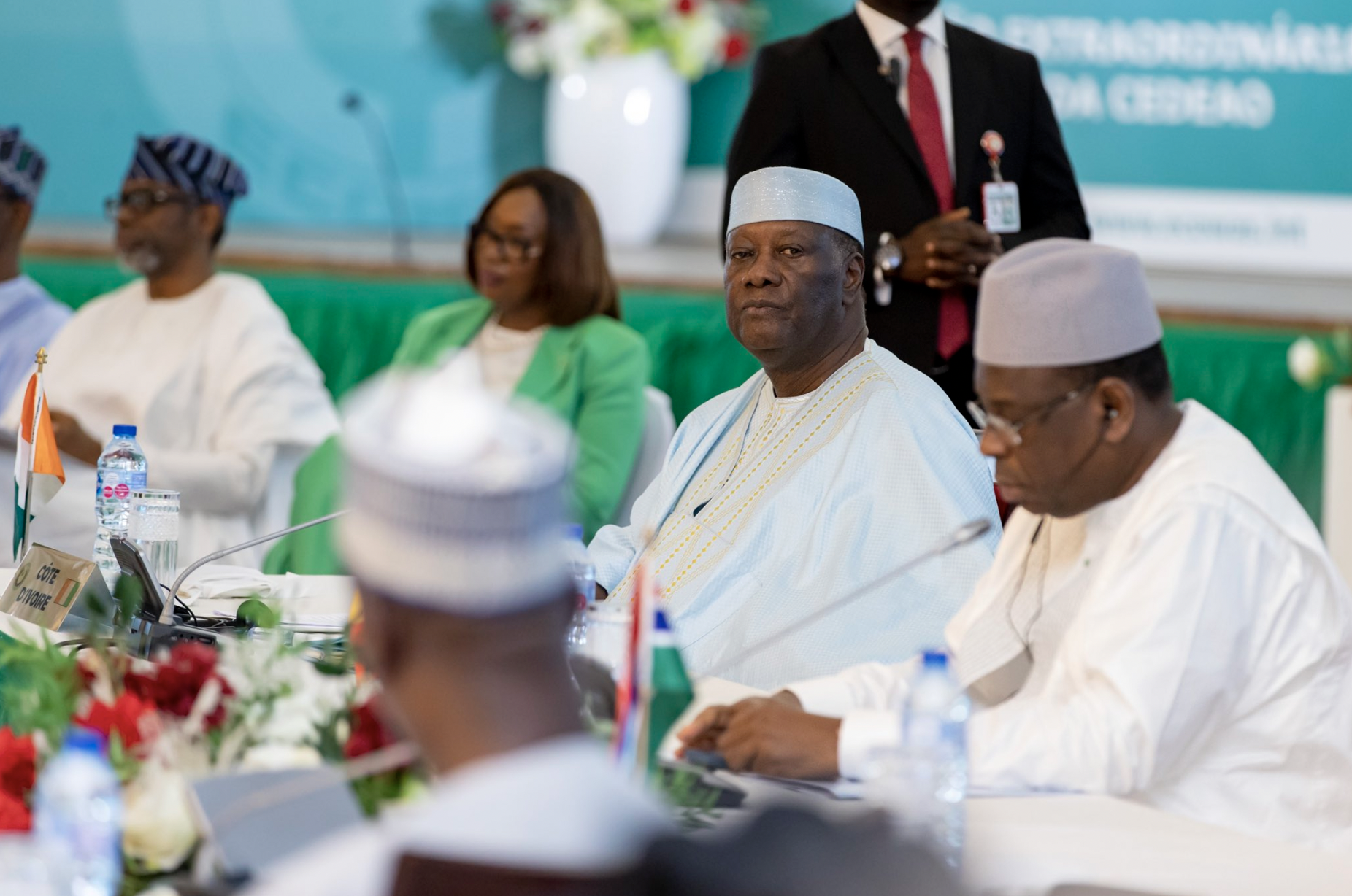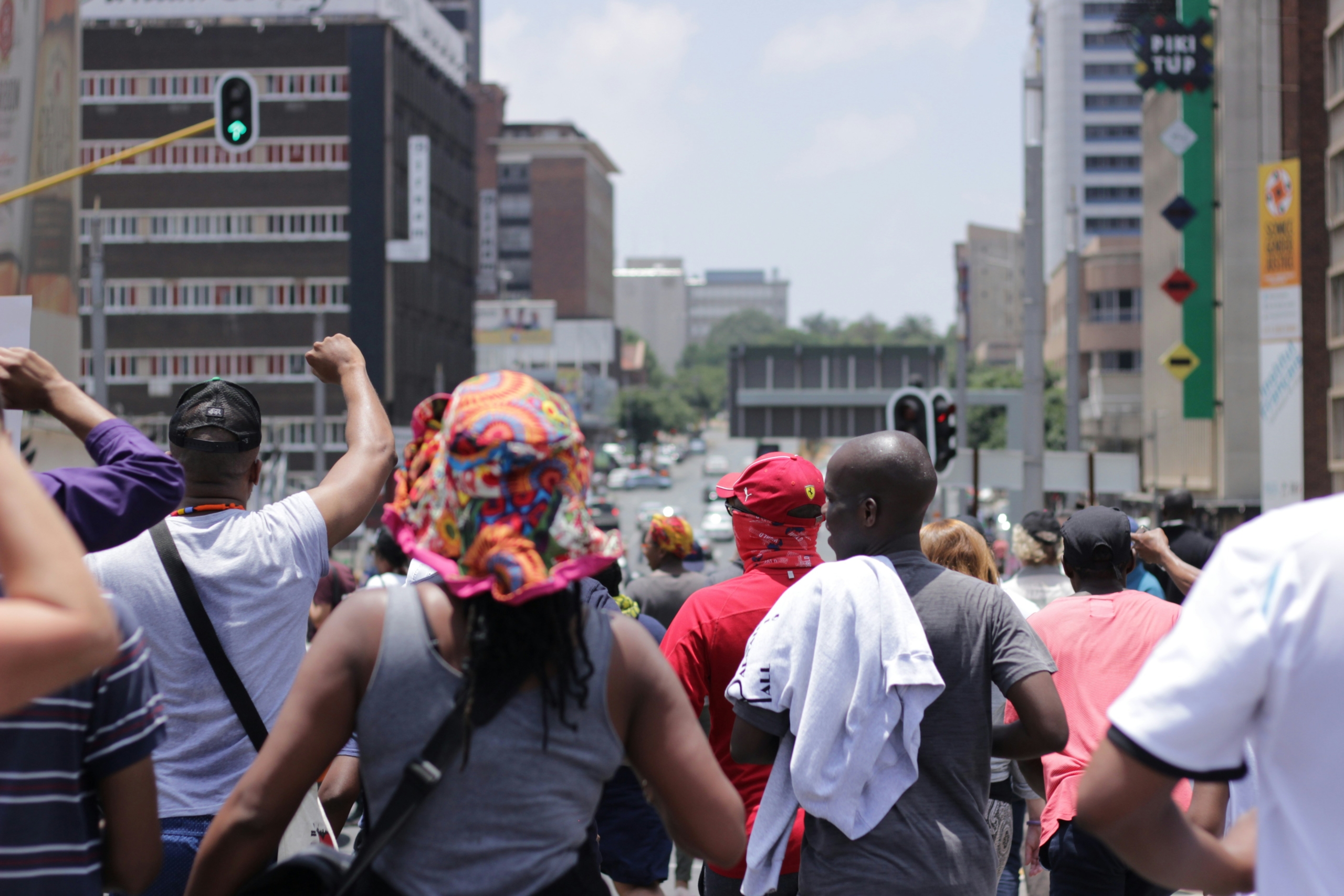We are excited to announce that Brink is now part of Africa Practice. Learn more
Sahelian strongmen have Côte d’Ivoire in their sights

Once a pivotal player in West Africa, Côte d’Ivoire is having to confront emerging challenges in its neighbourhood, driven by shifts in governance across the hinterland. Military-led regimes in Burkina Faso, Mali and Niger have adopted a nationalist tone and sought to identify foreign scapegoats to cement their domestic authority. These regimes have taken an increasingly hostile stance towards Abidjan, accusing the Ivorian authorities of clandestine interference intended to undermine their rule. Côte d’Ivoire remains one the few steadfast Western allies in Francophone West Africa, but this increasingly makes it a regional outlier, unable to mediate between the Sahelian juntas and the Economic Community of West African States (ECOWAS).
Challenging neighbourhood
Côte d’Ivoire has experienced significant strain in its relations with the Sahelian states following the advent of military governments in Burkina Faso, Mali and Niger. Despite Ivorian President Alassane Ouattara consistently pledging to maintain constructive relations with the juntas, interim leaders Ibrahim Traoré of Burkina Faso, Assimi Goïta of Mali and Abdourahmane Tchiani of Niger have sought to isolate Côte d’Ivoire and portray its advocating a hardline approach against military rule, including economic sanctions and the of use of force to overturn coups d’état. While Ouattara has been less outspoken than his Nigerian counterpart Bola Tinubu – who currently leads ECOWAS – his commitment to civilian rule has placed Abidjan in the crosshairs of the juntas.
In July 2023, the Malian authorities detained 49 Ivorian soldiers who were part of the UN Mission, accusing Côte d’Ivoire of plotting against the regime and initially seeking to portray the troops as mercenaries. The men were only released six months later, following extensive negotiations, overseen by Togo, as bilateral relations were severely strained. The incident was likely provoked by a leaked audio recording attributed to Ouattara, in which the Ivorian president apparently questions the Malian junta’s capacity to manage its economy and hints at Côte d’Ivoire’s ability to shape sanctions against the country.
Since August 2023, relations between Côte d’Ivoire and Niger have also deteriorated. This downturn began when Ouattara publicly committed to deploying troops towards a planned regional military intervention against Niger’s coup leaders, in the event this proceeded. Although it is unclear to what extent Côte d’Ivoire plays a direct role in the stringent economic sanctions imposed on Niger by ECOWAS, Abidjan is a regional financial hub, and the Nigerien junta has identified the Ouattara government as one of its main adversaries. Tensions have been further exacerbated by symbolic gestures, including hosting former Ivorian Prime Minister Guillaume Soro in Niamey, demonstrating overtures towards a virulent opponent of Ouattara, who has been operating in exile since December 2019.
Over the past year, Burkina Faso’s bilateral relations with its coastal neighbours, including Côte d’Ivoire, have also significantly deteriorated. On 11 July, the Burkinabé military ruler Captain Ibrahim Traoré openly accused Abidjan of plotting with France to destabilise his country during an interview with local journalists. Several contentious incidents have exacerbated tensions between the two countries in recent months. In September 2023, Burkina Faso arrested two Ivorian gendarmes, who were subsequently transferred to Ouagadougou on allegations of espionage. Abidjan retaliated in March 2024 by ordering the arrest of one Burkinabé soldier and a volunteer for homeland defence, who crossed the Ivorian border. Despite some political and civil society opposition figures having fled the junta to find refuge in Côte d’Ivoire, no credible sources have confirmed the existence of an organised network seeking to destabilise Burkina Faso.
Political theatre and geopolitics
The incidents reveal how Sahelian junta leaders Traoré, Goïta and Tchiani are seeking to deflect from their insecurity and illegitimacy in office by pursuing conflict with neighbouring states and heightening nationalist sentiment. Interestingly, the trio has sought to scapegoat Côte d’Ivoire, as the regime most closely allied with France, rather than picking on Nigeria, which advocated for military intervention to overturn a putsch in Niger, before backtracking. Equally, it indicates both a keen awareness of anti-French sentiment across the Sahel, recognising that this resonates more clearly with domestic constituencies. Finally, it may hint at the hidden hand of the Kremlin, since Russia has backed the Sahelian juntas in order to weaken France and overturn Western dominance in the region.
Thus far, diplomatic tensions between Côte d’Ivoire and the Sahelian governments have yet to have a material impact on trade. While regional economic community ECOWAS initially seemed intent on curbing trade with Niger by closing borders in response to the July 2023 coup d’état, the international frontier with Nigeria has since reopened and commerce has resumed, even if tensions with Benin persist over revenue sharing from an oil export pipeline.
For Côte d’Ivoire, deteriorating relations with neighbouring Burkina Faso and Mali risks disrupting commercial ties, given both countries are important trade partners. However, for now, all three governments seem intent on keeping borders open, suggesting that the Sahelian strongmen are flexing their muscles for a domestic audience, rather than in order to overturn established relations. This dynamic may eventually shift as Burkina Faso, Mali and Niger seek to operationalise the Alliance of the Sahel States (AES) – a bloc rival to ECOWAS – turning to coastal nations such as Togo, which they perceive to be less antagonistic, for overland trade.
An increasingly polarised region
Côte d’Ivoire stands out as one of the few Francophone African countries openly aligned with the West, amidst a backdrop where several regimes, both democratic and military, have embraced a sovereigntist narrative. Despite anti-French grievances marking Laurent Gbagbo’s rule (2000-2010), diplomatic and commercial relations between Paris and Abidjan have notably improved since Alassane Ouattara assumed power in 2011. In response to growing anti-French sentiment concerning its military presence in the region, Paris has taken the precaution of scaling back its troop presence, which is likely to decline from 900 to some 100. Despite this reduction, France will continue to be a key counterterrorism partner for the Ivorian army.
Following its expulsion from Niger, the US is looking to establish a military base in the northern city of Odienné, near the border with Mali, suggesting that Côte d’Ivoire will emerge as a reliable regional security partner for Western allies in the coming years. The details of this future base, including its personnel and the date of its operational commencement, have yet to be made public. However, this installation is expected to serve as a new outpost for the US military in West Africa, where the expansion of Sahelian jihadist groups poses a threat to the Gulf of Guinea countries.
Conversely, Mali, Burkina Faso, and Niger have shifted their alliances away from Western powers towards Russia. These regimes reportedly engaged Russian mercenaries from the Wagner Group – which has since been integrated in the Kremlin’s Africa Corps – to combat insurgents. This ideological shift will further complicate diplomatic and security cooperation between Côte d’Ivoire and its neighbours. While the Ivorian government remains confident in its ability to secure northern regions from Islamist militants, limited cooperation with Burkina Faso and Mali, where militants have entrenched themselves, ensures that Islamist militancy will pose a persistent threat to Côte d’Ivoire and its coastal neighbours.
Shifting sands
Once a regional giant, Côte d’Ivoire’s diplomatic influence has waned over the past three years, leaving it somewhat isolated as a regional hegemon in Francophone Africa. Before the wave of military coups in the region, the country wielded significant convening power, rallying Sahelian countries as well as coastal countries such as Senegal, Togo, Guinea-Bissau and Benin around regional diplomatic and development initiatives.
As Côte d’Ivoire’s influence has waned, Senegal, another key regional player, has grown in stature. The country has also undergone an ideological shift, with the administration of Bassirou Diomaye Faye espousing scepticism of the West and its values – a stance which resonates more closely with the Sahelian juntas. Earlier this month, ECOWAS mandated President Faye as the new ECOWAS facilitator for engagement with the Sahelian juntas, supported by his Togolese counterpart Faure Gnassingbé.
Faye may share the youthfulness of the junta leaders, as well as a desire to dilute French influence in the region, but his desire for continental unity – as exemplified by the creation of a dedicated Ministry of African Integration and Foreign Affairs – sets him at odds with Traoré, Goïta and Tchiani. However, given the high expectations of the Senegalese electorate, which is demanding rapid socioeconomic improvements, in the short-term, Faye is likely to focus on domestic issues, leaving Burkina Faso, Mali and Niger to pursue their own political project, away from ECOWAS.
Proud to be BCorp. We are part of the global movement for an inclusive, equitable, and regenerative economic system. Learn more


